Radiation Effects 2023 Phelps Award Winners
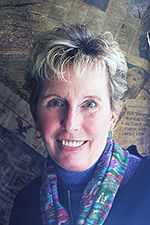
Radiation Effect Vice Chair, Publicity
The 2023 Paul Phelps Continuing Education Grant was awarded to four student members from the radiation effects community. At the opening of the NSREC Conference (July 24th, 2023), Robert Reed, Chair of the Radiation Effects Steering Group, announced the grant awards. The grants included tuition for the 2023 NSREC Short Course and a check for $750.
The purpose of the Phelps Grant is to promote continuing education and encourage membership in the Nuclear and Plasma Sciences Society (NPSS). The criteria for judging are exceptional promise as a student, postdoc or research associate in any of the fields of NPSS, or exceptional work in those fields by currently unemployed NPSS members with an expectation that attendance at the Short Course will improve the possibility of obtaining a job in an NPSS field.
The four recipients of the 2023 Paul Phelps Continuing Education Grant were Sarah Azimi, Tomasz Rajkowski, Jeffery Tang, and Yoni Xiong.
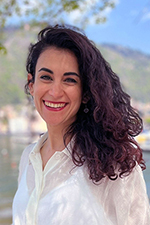
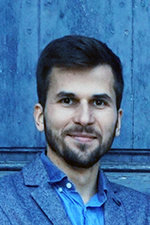
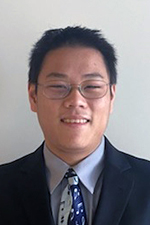
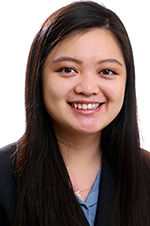
Sarah Azimi completed her undergraduate studies in Electrical Engineering at Isfahan University of Technology in Isfahan, Iran, in 2013. In 2015, she joined Politecnico di Torino to pursue a Ph.D. under the guidance of Prof. Luca Sterpone. She successfully obtained her Ph.D. in 2019 and currently works as a researcher in the CAD & Reliability group at the Computer and Control Engineering Department of Politecnico di Torino. Sarah’s primary research focus revolves around the analysis of radiation effects and the development of mitigation techniques, with a focus on radiation-induced transient errors in integrated circuits and reconfigurable logics such as FPGAs. She participated in many radiation test campaigns to validate these techniques at facilities like CERN’s heavy ion and PSI’s proton facilities. Sarah has actively participated in various industrial space-oriented applications throughout her research career. Notably, she contributed to the EUCLID space mission led by the European Space Agency, which was launched in July 2023. Sarah’s research findings have been published in over 70 international conference records and journals, with notable contributions to conferences such as RADECS and NSREC and journals such as IEEE Transactions on Nuclear Science. These publications highlight the significant impact of her work in the field.
Tomasz Rajkowski has several years of experience in nanosatellite projects in which he was involved at the Space Research Center (Poland) from 2011-2017. In 2018 he joined the RADSAGA program, where he pursued his Ph.D. studies at the University of Montpellier (France) in collaboration with the 3D-Plus company. He investigated the possibilities for radiation qualification of the System-in-Package modules by means of system-level testing. The work was supervised by Prof. Frédéric Saigné from the University of Montpellier and Pierre-Xiao Wang from 3D-Plus. The study performed let him present various opportunities and limitations for the qualification based on the system-level radiation tests. Tomasz also proposed a method for the so-called limited radiation qualification of electronic systems and presented a proposal for a product design cycle that uses different types of tests to give limited radiation qualification. The Ph.D. study results were presented during RADECS and IEEE NSREC conferences, as well as published in the IEEE Transactions on Nuclear Science. Tomasz has been a postdoctoral researcher at the National Center for Nuclear Research (Poland), where he continues his research on system-level radiation testing and qualification, in collaboration with the RADNEXT project. He also works on the topic of SEE testing with electron beams and comparison to standard SEE test methods.
Dr. Jeffrey Teng grew up in many places, including Taiwan, Alabama, Florida, and most recently, Wisconsin. He obtained his B.S. in electrical engineering from the Georgia Institute of Technology in 2018, where he stayed to complete both his M.S. and Ph.D. in electrical engineering under Dr. John Cressler. His research focused on the interaction of space radiation on microelectronics with emphasis on SiGe BiCMOS technologies and RF circuits and systems. He is currently working there as a post-doc, where he will spend a year working on SiGe HBT profile engineering and lecturing undergraduates on RF engineering. During his graduate studies, he was the recipient of outstanding paper awards in both the IEEE Nuclear and Space Radiation Effects Conference (NSREC) and the European Conference on Radiation and Its Effects in Components and Systems (RADECS). In his free time, Jeff is an avid gamer, practices and performs the violin, and enjoys ethnic cuisines and unique dining experiences.
Yoni Xiong, a Ph.D. student at Vanderbilt University, is pursuing her degree in the field of radiation effects and reliability. She graduated with highest honors in Electrical Engineering from Vanderbilt University in 2021. She is a recipient of the Department of Energy (DOE) National Nuclear Security Administration (NNSA) Stewardship Science Graduate Fellowship for her graduate studies. At NSREC 2022, she received the Best Student Paper award for her work on characterizing single-event cross sections at the 5-nm and 7-nm bulk FinFET node. She currently serves as the chair of the Vanderbilt University Student Branch Chapter of IEEE NPSS. Ms. Xiong’s research interests include characterizing advanced technologies to various radiation effects for a multitude of parameters. She has published papers dealing with single-event effects, total-ionizing dose effects, dose-rate effects, and displacement-damage effects. She has also characterized advanced technologies for aging effects. Yoni has presented her research findings at major IEEE symposia including NSREC, RADECS, and IRPS. Yoni has authored or co-authored 16 journal papers and conference proceedings papers focused on radiation effects in microelectronics. She has gained industry experience at Sandia National Laboratories, Northrop Grumman, and Cisco Systems. Currently, Yoni is actively engaged in investigating radiation effects and reliability on the 5-nm and 3-nm bulk FinFET nodes. With the rapid advancement of semiconductor technology, the shrinking dimensions of transistors pose new challenges in terms of their susceptibility to radiation-induced effects. Yoni’s research focuses on understanding the impact of radiation on the performance and reliability of these cutting-edge FinFET devices. Her research involves rigorous experimentation, data analysis, and simulation techniques to comprehensively characterize and model the response of the advanced bulk FinFET nodes to different types of radiation exposures.
Nominations for 2024 Radiation Effects Awards
Nominations are due January 26th, 2024, for awards that will be presented at the IEEE NSREC 2024 Conference, July 22nd – 26th, in Ottawa, Canada.
Radiation Effects Award Nominations
Nominations are currently being accepted for the 2024 IEEE Nuclear and Plasma Sciences Society (NPSS) Radiation Effects Award. The purpose of the award is to recognize individuals who have had a sustained history of outstanding and innovative technical and/or leadership contributions to the radiation effects community. The $3000 cash award and plaque will be presented at NSREC Ottawa, Canada. Forms are available electronically at http://ieee-npss.org/technical-committees/radiation-effects/ and must be submitted by January 26th, 2024. Additional information can be obtained from Mike Tostanoski, Senior Member-at-Large, Radiation Test Solutions, for the Radiation Effects Steering Group. Mike can be reached at [email protected]
Radiation Effects Early Achievement Award Nominations
Nominations are currently being accepted for the 2024 Radiation Effects Early Achievement Award. The purpose of this award is to recognize an individual early in his or her career whose technical contributions and leadership have had a significant impact on the field of radiation effects. The $1500 cash award and plaque will be presented at NSREC Ottawa, Canada. Forms are available electronically at http://ieee-npss.org/technical-committees/radiation-effects/ and must be submitted by January 26th, 2024. Additional information can be obtained from Mike Tostanoski, Senior Member-at-Large, Radiation Test Solutions, for the Radiation Effects Steering Group. Mike can be reached at [email protected]
Paul Phelps Continuing Education Grant Nominations
Nominations are currently being accepted for the 2024 Paul Phelps Continuing Education Grant. The purpose of the grant is to promote continuing education (attendance at the 2024 NSREC Short Course) and encourage membership in NPSS. Outstanding members of NPSS who are either Student Members, Post-Doctoral Fellows or Research Associates, or unemployed members needing assistance in changing career direction can be nominated for the award. The actual amount of the grant will be determined prior to the 2024 NSREC in Ottawa, Canada. Funds are to be used towards covering travel costs to attend the NSREC Short Course. The grant also provides complimentary short course registration.
Nomination forms are available electronically and must be submitted by January 26th, 2024. Additional information can be obtained from Megan Casey, Member-at-Large, NASA GSFC, for the Radiation Effects Steering Group. Megan can be reached at [email protected].
Teresa Farris, Radiation Effects Vice Chair, Publicity can be reached at [email protected]